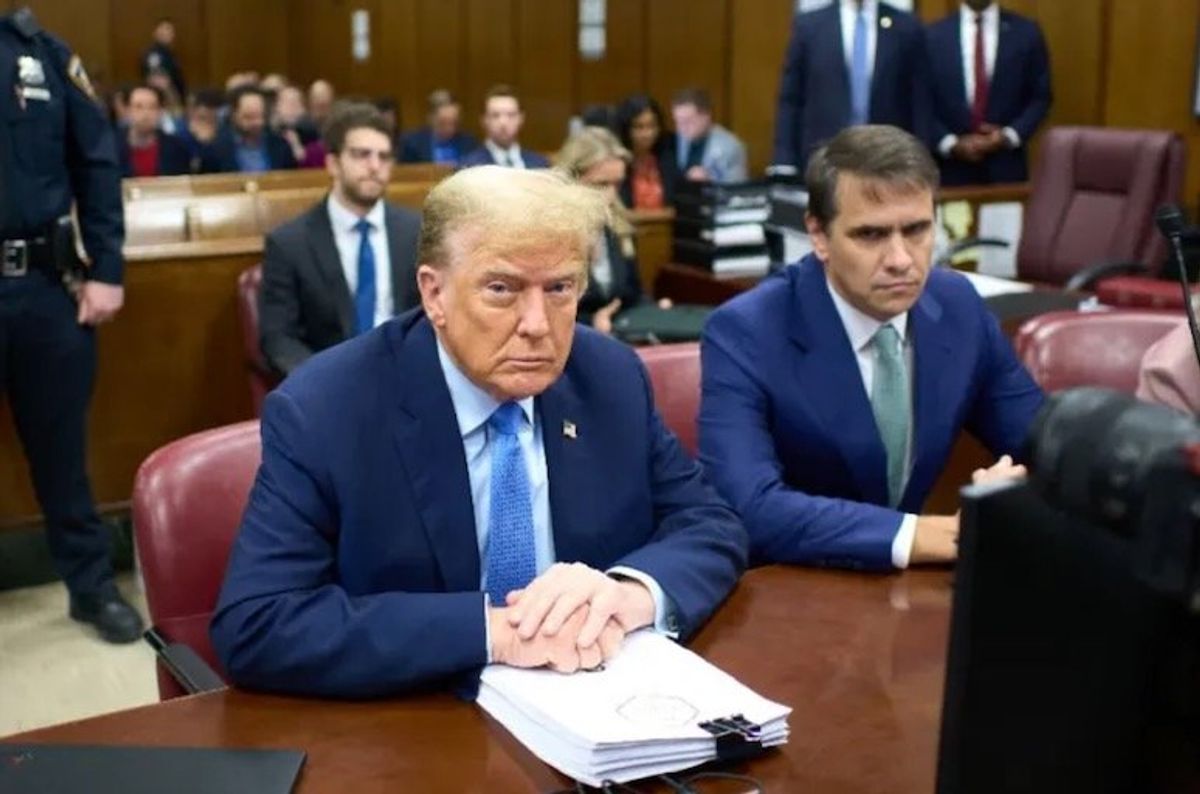
Donald Trump's conviction was not inevitable, but a legal expert explained that he made his guilty verdict more likely with a series of bad decisions that interfered with his legal team's defense.
A jury in New York found the former president guilty on all 34 felony counts of falsifying business records to cover up other crimes, and Politico's Ankush Khardori argued that Trump and his attorneys bungled the trial.
"This was probably a winnable case — not in the form of an acquittal perhaps, but in the form of a hung jury that could have resulted by persuading one or more jurors that a case built around Michael Cohen — the former Trump lawyer/fixer turned convicted felon turned media personality — was simply not strong or reliable enough to warrant this watershed moment in American history," wrote Khardori, a prosecutor at the Department of Justice, where he specialized in financial fraud and white-collar crime.
"Trump also probably could have gotten off with convictions on misdemeanor counts of falsifying his company’s business records instead of felonies, but he never asked the judge to instruct the jurors on that point, perhaps fearing that the request might make him look weak — the worst offense of them all in his mind," Khardori added.
ALSO READ: 8 ways convicted felon Donald Trump doesn't become president
Trump's fingerprints were all over the strategic and tactical errors his attorneys made, Khardori said, including their insistence that adult film actress Stormy Daniels had fabricated her claims about a sexual relationship with the ex-president and then ineffectively attacked her during cross-examination.
"It was legal Trumpism — deny everything, attack indiscriminately," Khardori wrote.
They should have been able to undermine testimony from Cohen, who Khardori described as "one of the least credible witnesses in the history of white-collar prosecutions and a defense lawyer’s dream," but lead attorney Todd Blanche dwelled on some points and skipped over others during his "stilted and awkward" cross-examination.
"Blanche’s closing argument was his last shot — and it was a very good shot — to get Trump off," Khardori wrote. "This was the opportunity for Trump’s legal team to synthesize everything that they had done well over the course of the trial and to present a cohesive case for someone on the jury to refuse to convict Trump. They could ditch the bad arguments and focus on the good ones."
Trump's team had a week to prepare their closing argument, but Blanche failed to persuade jurors to reject Cohen's testimony by focusing on the wrong details.
"Blanche bizarrely dwelled on minutiae about who was in charge of entering payment details in the Trump Organization computer system," Khardori wrote. "Truly, who cared? None of that ever mattered."
"The most obvious point — that Cohen provided crucial but uncorroborated testimony about his conversations with Trump — did not come through clearly at all," he added. "It was not enough to call Cohen a liar. Blanche had to explain to the jury that Cohen was in fact an essential component of the prosecutors’ case and that without him, the whole thing fell apart. Blanche tried but fumbled — and failed."




